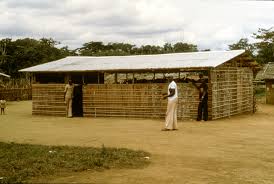
Introduction
Gabon, located on the west coast of Central Africa, is a country known for its lush rainforests, stunning wildlife, and diverse cultures. This nation holds significant ecological and economic importance due to its natural resources and commitment to conservation. With a growing tourism sector and ongoing political reforms, Gabon is emerging as a notable player on the African continent.
The Natural Wonders of Gabon
Covering over 267,668 square kilometers, Gabon’s varied landscapes include coastal areas, savannah, and expansive rainforests that are home to an extraordinary array of wildlife. Gabon boasts 13 national parks that cover 10% of its territory, showcasing the country’s commitment to preserving its rich biodiversity. Notably, the Loango National Park is famous for its beaches, mangroves, and wildlife, including elephants and hippos that inhabit its waters.
Cultural Diversity
Gabon is inhabited by multiple ethnic groups, with the Fang, Myene, and Punu peoples being among the most prominent. This cultural richness is reflected in Gabon’s vibrant music, dance, and art, which are integral to community life and celebrations. The annual Ngondo Festival, celebrated by the Sawa people, is a remarkable display of Gabon’s cultural heritage, featuring traditional dances, rituals, and crafts.
Economic Landscape
Economically, Gabon has one of the highest GDPs per capita in Africa, largely due to its vast oil reserves. Oil production accounts for a significant portion of the country’s revenue. However, the government is actively working towards diversifying its economy to reduce reliance on oil, emphasizing sustainable development, ecotourism, and infrastructure projects.
Challenges and Future Prospects
Despite its wealth in natural resources, Gabon faces challenges such as political instability, income inequality, and an economic dependency on oil. The government is implementing reforms to address these issues, aiming to promote good governance and economic diversification. Additionally, with increasing global awareness of environmental issues, Gabon’s focus on conservation and sustainable tourism could position it positively on the international stage.
Conclusion
As Gabon continues to navigate its path forward, the combination of its rich natural heritage, cultural diversity, and ongoing development initiatives presents unique opportunities. For investors, tourists, and policymakers alike, Gabon offers a glimpse into a nation poised for growth while striving to preserve its remarkable environment and vibrant culture.



